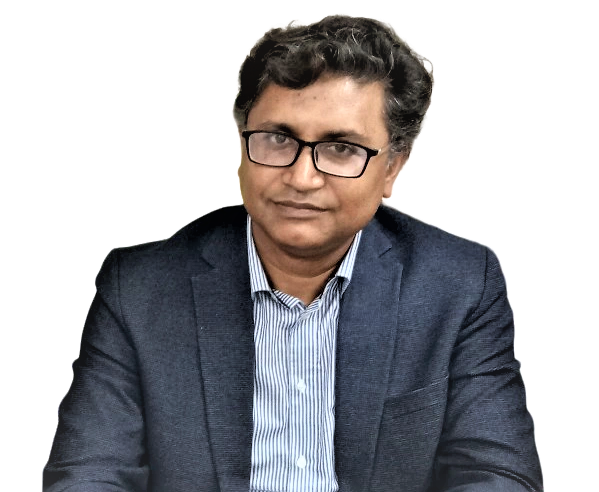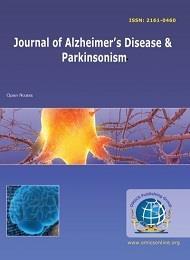Theme: Youth and Mental Health: Innovative Strategies for a Changing Generation
Mental Health Congress 2025
- About Conference
- Why to attend?
- Who can attend?
- Session and Track
- Benefits of Participants
- Market Analysis
Welcome to the 37th International Conference on Mental Health and Psychiatry, this will take place on May 14-15, 2025, in the vibrant city of Paris, France. The aim of this conference, " Youth and Mental Health: Innovative Strategies for a Changing Generation" is to bring together practitioners, researchers, and specialists from around the globe to discuss and tackle the pressing issues that the internal medicine field is currently facing.
Among the topics covered by the extensive program of keynote presentations, plenary sessions, interactive workshops, and poster presentations at the International Medicine Conference are Clinical Psychiatry, Psychological Research, Neuroscience and Mental Health, Child and Adolescent Psychiatry, Geriatric Psychiatry, Mental Health Policy and Advocacy, Digital Mental Health, Psychotherapy and Counselling, Emergency Psychiatry and Crisis Intervention, Community and Public Mental Health, Cultural and Global Perspectives and Innovations and Future Directions.
The conference will provide a forum for young academics and students to showcase their work and get sage guidance from seasoned professionals in the industry. We kindly invite you to join Mental Health Congress 2025 in Paris for an enriching and thought-provoking experience. We highly recommend that you submit your abstracts if you want the opportunity to present your discoveries and innovations to a global audience of peers and professionals.
Cutting-Edge Research and Insights:
- Stay ahead of the curve with the latest research, trends, and advancements in mental health and psychiatry.
- Gain access to ground breaking studies and emerging therapies that could transform your practice or research.
Expert Speakers and Thought Leaders:
- Hear from renowned experts and thought leaders in the field who will share their insights and experiences.
- Engage in discussions with leading professionals about current challenges and future directions in mental health.
Networking Opportunities:
- Connect with fellow professionals, researchers, and practitioners from around the world.
- Build valuable relationships that could lead to collaborative projects, research opportunities, or career advancements.
Educational Workshops and Sessions:
- Participate in interactive workshops and sessions designed to enhance your skills and knowledge.
- Learn about new tools, techniques, and best practices that you can apply in your own work.
Global Perspective:
- Understand how mental health and psychiatric issues are being addressed across different cultures and countries.
- Explore global initiatives and frameworks for improving mental health care worldwide.
Inspiration from Paris:
- Enjoy the vibrant cultural and historical atmosphere of Paris, a city known for its rich history and inspiring environment.
- Use the opportunity to explore the city and take a break from your routine, combining professional development with personal enrichment.
Professional Development:
- Earn continuing education credits or certifications that can enhance your professional credentials.
- Stay updated on industry standards and regulations, ensuring you remain compliant and effective in your practice.
Innovative Solutions:
- Discover innovative approaches to mental health challenges, including new technologies and treatment modalities.
- Mental Health Professionals: Psychiatrists, psychologists, psychiatric nurses, social workers, and therapists.
- Researchers and Academics: Individuals conducting research in mental health, psychiatry, psychology, and related fields.
- Healthcare Providers: General practitioners, primary care physicians, and other healthcare professionals interested in mental health.
- Policy Makers and Advocates: Individuals involved in shaping mental health policies and advocating for mental health issues.
- Students and Trainees: Those studying mental health, psychiatry, psychology, and related disciplines.
- Healthcare Administrators: Professionals involved in the management and organization of mental health services.
- Industry Representatives: Companies and organizations that produce mental health-related products and services, such as pharmaceuticals, medical devices, and digital health solutions.
Clinical psychiatry is focused on diagnosing, treating, and preventing mental health disorders. It involves a thorough understanding of psychological, biological, and social factors that influence mental health. Psychiatrists, the medical doctors specializing in this field, use a combination of psychotherapy, medication, and other interventions to manage conditions such as depression, anxiety, bipolar disorder, schizophrenia, and more. Clinical psychiatry aims to improve patients' mental well-being, functioning, and quality of life through evidence-based practices.
Track 2: Psychological Research
Psychological research is the scientific study of human behavior, cognition, emotions, and social interactions. It aims to understand how people think, feel, and act individually and in groups. Researchers in this field use various methods, including experiments, surveys, observations, and case studies, to explore topics such as perception, learning, memory, personality, and mental health. The findings from psychological research contribute to the development of theories, treatments, and interventions that enhance mental health and well-being, as well as improve educational, organizational, and social practices.
Track 3: Neuroscience and Mental Health
Neuroscience and Mental Health involve the study of the brain and nervous system, focusing on how they influence emotions, behavior, and cognition. Neuroscience explores the biological mechanisms that underpin brain function, including neural circuits and neurotransmitters. Mental health, on the other hand, examines psychological well-being and disorders, such as depression, anxiety, and schizophrenia. Together, they aim to understand the complex interplay between brain biology and mental processes, leading to better treatments and interventions for mental health condition.
Track 4: Child and Adolescent Psychiatry
Child and Adolescent Psychiatry is a specialized field of medicine that focuses on diagnosing, treating, and preventing mental health disorders in children and teenagers. This discipline addresses a range of issues, including behavioral problems, emotional disturbances, developmental disorders, and psychiatric conditions like anxiety, depression, and ADHD. Child and adolescent psychiatrists are trained to consider the unique psychological, social, and developmental needs of younger patients, working closely with families, schools, and other caregivers to provide comprehensive care and support during crucial stages of growth and development.
Geriatric Psychiatry is a branch of medicine dedicated to the mental health care of older adults. This field focuses on the prevention, diagnosis, and treatment of psychiatric disorders that are common in aging populations, such as dementia, depression, anxiety, and late-life schizophrenia. Geriatric psychiatrists are trained to address the complex interplay of medical, neurological, and psychological issues that can affect the elderly, including cognitive decline, medication management, and the impact of chronic illness on mental health. The goal is to enhance the quality of life and emotional well-being of older adults through tailored therapeutic interventions.
Track 6: Mental Health Policy and Advocacy
Mental Health Policy and Advocacy involve efforts to shape public policies, laws, and practices that promote mental health and improve access to care. This field focuses on creating systemic changes that ensure equitable, effective, and affordable mental health services for all. Advocacy work includes raising awareness, reducing stigma, and influencing legislation to protect the rights of individuals with mental health conditions. It also involves collaboration with stakeholders—such as governments, healthcare providers, and community organizations—to develop policies that address mental health disparities and integrate mental health into broader public health initiatives. The ultimate goal is to create a supportive environment where mental health is recognized as a vital component of overall well-being.
Track 7: Digital Mental Health
Digital Mental Health refers to the use of technology, such as mobile apps, online platforms, and wearable devices, to deliver mental health care and support. This field leverages digital tools to provide accessible, scalable, and personalized mental health interventions, including therapy, self-help resources, and symptom tracking. Digital mental health solutions can enhance traditional care by offering remote access to mental health services, particularly for those in underserved or remote areas. They also facilitate continuous monitoring and early intervention, helping individuals manage their mental well-being more effectively. The integration of technology into mental health care represents a growing and innovative approach to addressing mental health challenges in the digital age.
Track 8: Psychotherapy and Counselling
Psychotherapy and Counseling are therapeutic practices aimed at helping individuals manage and overcome emotional, psychological, and behavioral issues. Psychotherapy, often referred to as "talk therapy," involves working with a trained therapist to explore thoughts, feelings, and patterns of behavior to gain insight and develop coping strategies. Counseling typically focuses on specific issues or life challenges, offering guidance and support to navigate situations such as grief, relationship difficulties, or stress. Both approaches create a safe, confidential space for individuals to express themselves, develop self-awareness, and work toward personal growth and mental well-being.
Track 9: Emergency Psychiatry and Crisis Intervention
Emergency Psychiatry and Crisis Intervention focus on providing immediate and effective care for individuals experiencing acute psychiatric emergencies or crises. This field addresses situations such as severe mental health episodes, suicidal thoughts, or psychotic breaks, often requiring rapid assessment and intervention. Emergency psychiatrists are trained to stabilize patients, manage urgent psychiatric symptoms, and ensure safety. Crisis intervention involves strategies and support systems designed to de-escalate situations, provide immediate relief, and connect individuals with appropriate follow-up care. The goal is to address urgent mental health needs, prevent harm, and facilitate a path to ongoing treatment and recovery.
Track 10: Community and Public Mental Health
Community and Public Mental Health focus on promoting mental well-being and addressing mental health issues at a broader, societal level. This field involves developing and implementing programs and policies that support mental health across communities, aiming to improve access to care, reduce stigma, and enhance overall mental health outcomes. It includes initiatives such as public awareness campaigns, community-based mental health services, and preventive measures to address social determinants of mental health. By engaging with local organizations, governments, and the public, Community and Public Mental Health work to create supportive environments that foster mental wellness and address mental health challenges on a community-wide scale.
Track 11: Cultural and Global Perspectives
Cultural and Global Perspectives in mental health examine how cultural, social, and global factors influence mental health practices, beliefs, and outcomes. This field explores how different cultures perceive and address mental health issues, recognizing that cultural context can significantly impact mental health care and treatment efficacy. It also considers global health disparities and the challenges of providing equitable mental health services across diverse populations. By incorporating cultural competence and global awareness, this perspective aims to improve mental health interventions and policies, ensuring they are sensitive to and effective within various cultural contexts and international settings.
Track 12: Innovations and Future Directions
Innovations and Future Directions in mental health focus on exploring and implementing cutting-edge approaches to improve mental health care and outcomes. This includes advancements in technology, such as artificial intelligence, virtual reality, and digital therapeutics, which enhance diagnosis, treatment, and patient engagement. It also encompasses new research findings, emerging therapeutic techniques, and novel models of care that aim to address existing gaps and challenges in mental health. By embracing innovation, this field seeks to advance the effectiveness, accessibility, and personalization of mental health services, paving the way for more effective and forward-thinking solutions to mental health challenges.
Addiction is a chronic and often relapsing disorder characterized by a compulsive need to engage in certain behaviors or consume substances despite harmful consequences. It alters brain function, particularly in areas related to reward, motivation, and memory, leading to intense cravings and loss of control. Addiction can affect anyone and may involve drugs, alcohol, gambling, or other activities. Effective treatment typically requires a combination of therapy, support, and sometimes medication, focusing on breaking the cycle and addressing underlying issues.
Psychiatry is a medical specialty focused on diagnosing, treating, and preventing mental health disorders. Psychiatrists are trained physicians who evaluate the psychological, biological, and social factors contributing to mental illnesses such as depression, anxiety, schizophrenia, and bipolar disorder. They use a variety of treatments, including psychotherapy, medication, and other interventions, to help patients manage and overcome their conditions. Psychiatry plays a crucial role in improving mental well-being and enhancing the quality of life for individuals experiencing mental health challenges.
Anxiety is a common mental health condition characterized by persistent feelings of worry, fear, or unease. It can range from mild to severe and often involves physical symptoms such as increased heart rate, sweating, and restlessness. Anxiety disorders, which include generalized anxiety disorder, panic disorder, and social anxiety disorder, can significantly impact daily life and functioning. While anxiety is a normal response to stress, when it becomes overwhelming or chronic, it may require treatment, which can include therapy, medication, and lifestyle changes to help manage symptoms and improve quality of life.
Neurobiology is the scientific study of the nervous system, focusing on the structure, function, and development of neurons and neural circuits. It explores how the brain and other parts of the nervous system control behavior, cognition, emotions, and bodily functions. Neurobiology encompasses a range of topics, including neurotransmission, neuroplasticity, and the neural basis of learning, memory, and mental disorders. By understanding the biological mechanisms underlying nervous system function, neurobiology contributes to advances in treating neurological and psychiatric conditions, as well as in enhancing overall brain health.
Depression is a mental health disorder characterized by persistent feelings of sadness, hopelessness, and a lack of interest or pleasure in daily activities. It can affect how individuals think, feel, and handle daily tasks, often leading to changes in appetite, sleep patterns, and energy levels. Depression can range from mild to severe and may impact one's ability to function effectively. Causes of depression can include a combination of genetic, biological, environmental, and psychological factors. Effective treatment often involves a combination of therapy, medication, and lifestyle adjustments aimed at improving mood and overall well-being.
Mood disorders are a group of mental health conditions characterized by significant and persistent disturbances in a person’s mood. These disorders include conditions such as depression, bipolar disorder, and cyclothymic disorder. Individuals with mood disorders may experience extreme emotions, such as intense sadness or euphoria, that disrupt their daily life and functioning. Mood disorders can affect a person's relationships, work, and overall quality of life. Treatment typically involves a combination of psychotherapy, medication, and lifestyle changes to help stabilize mood and improve overall mental health.
Sleep disorders are conditions that disrupt normal sleep patterns, affecting the quality and duration of sleep. Common types include insomnia (difficulty falling or staying asleep), sleep apnea (interrupted breathing during sleep), restless legs syndrome (uncomfortable sensations in the legs), and narcolepsy (excessive daytime sleepiness). These disorders can lead to daytime fatigue, difficulty concentrating, and overall impaired functioning. Treatment options vary depending on the specific disorder and may include lifestyle changes, behavioral therapies, medications, and medical devices to improve sleep quality and address underlying issues.
Participants in the 37th International Conference on Mental Health and Psychiatry can expect a range of benefits, including:
1. Professional Development:
- Knowledge Acquisition: Stay updated with the latest research, clinical practices, and advancements in mental health and psychiatry.
- Skill Enhancement: Gain new skills and techniques through workshops and hands-on sessions.
2. Networking Opportunities:
- Connecting with Peers: Network with fellow professionals, researchers, and academics from around the world.
- Collaborative Opportunities: Explore potential collaborations and partnerships for research or clinical practice.
3. Exposure to Innovations:
- Cutting-Edge Research: Learn about the latest findings and technological advancements in mental health.
- New Tools and Techniques: Discover new tools, methods, and digital health solutions.
4. Insights from Experts:
- Keynote Addresses: Hear from leading experts and thought leaders in the field.
- Panel Discussions: Participate in discussions with specialists on pressing issues and future directions.
5. Career Advancement:
- Resume Building: Enhance your professional profile by engaging in high-level discussions and presenting your work.
- Job Opportunities: Explore job openings and career opportunities through networking and interactions with potential employers.
6. Access to Resources:
- Conference Materials: Receive access to conference proceedings, research papers, and other valuable resources.
- Exhibition: Explore exhibits from companies and organizations showcasing mental health products and services.
7. Cultural Experience:
- Global Perspectives: Gain insights into mental health practices and policies from different cultural and geographic contexts.
The 37th International Conference on Mental Health and Psychiatry involves evaluating various aspects to understand the event's potential impact and success.
- Industry Growth: The global mental health market is growing, driven by increasing awareness, research advancements, and a rising prevalence of mental health disorders. The focus on mental health has intensified, making conferences like this increasingly relevant.
- Target Audience: The conference targets mental health professionals, researchers, academics, policymakers, and students. The expanding interest in mental health issues across diverse sectors, including healthcare, education, and technology, broadens the audience.
- Similar Conferences: Analyse other major mental health and psychiatry conferences held globally, their themes, size, and success metrics. Key competitors may include the World Psychiatry Association (WPA) congress, the American Psychiatric Association (APA) annual meeting, and other regional or specialty conferences.
- Unique Selling Proposition: Identify what sets the 37th International Conference apart, such as its location in Paris, renowned speakers, or a focus on specific emerging topics.
- Geographic Distribution: The conference will attract international participants, with significant representation from Europe, North America, and other regions interested in mental health.
- Professional Background: Attendees will include psychiatrists, psychologists, researchers, policymakers, and students, with a mix of experienced professionals and emerging talent.
- Budget and Funding: Analyse potential revenue sources, including registration fees, sponsorships, exhibitor fees, and grants. Consider the economic environment and its impact on attendees’ ability to participate.
- Strategies: Develop a marketing plan to promote the conference, including digital marketing, social media, professional networks, and partnerships with relevant organizations and institutions.
- Sponsorship Packages: Create various sponsorship levels to attract organizations interested in supporting the conference. Offer benefits such as branding opportunities, speaking slots, and exhibition space.
- Exhibitor Opportunities: Provide opportunities for companies and organizations to showcase their products, services, and innovations related to mental health and psychiatry.
- Program Content: Ensure the program includes high-quality presentations, workshops, and discussions that address current challenges and advancements in mental health.
- Follow-Up: Assess the potential for on-going engagement with attendees through follow-up surveys, newsletters, and future events.
- Mitigation Strategies: Develop strategies to address these risks, including flexible planning and contingency measures.
Conference Highlights
- Clinical Psychiatry
- Psychological Research
- Neuroscience and Mental Health
- Child and Adolescent Psychiatry
- Geriatric Psychiatry
- Mental Health Policy and Advocacy
- Digital Mental Health
- Psychotherapy and Counselling
- Emergency Psychiatry and Crisis Intervention
- Community and Public Mental Health
- Cultural and Global Perspectives
- Innovations and Future Directions
- Addiction
- Psychiatry
- Anxiety
- Neurobiology
- Depression
- Mood disorder
- Sleep disorder
To share your views and research, please click here to register for the Conference.
To Collaborate Scientific Professionals around the World
| Conference Date | May 14-15, 2025 | ||
| Sponsors & Exhibitors |
|
||
| Speaker Opportunity Closed | |||
| Poster Opportunity Closed | Click Here to View | ||
Useful Links
Special Issues
All accepted abstracts will be published in respective Our International Journals.
- International Journal of Mental Health and Psychiatry
- Journal of Alzheimer’s Disease and Parkinsonism
- International Journal of Emergency Mental and Human Resilience
Abstracts will be provided with Digital Object Identifier by












